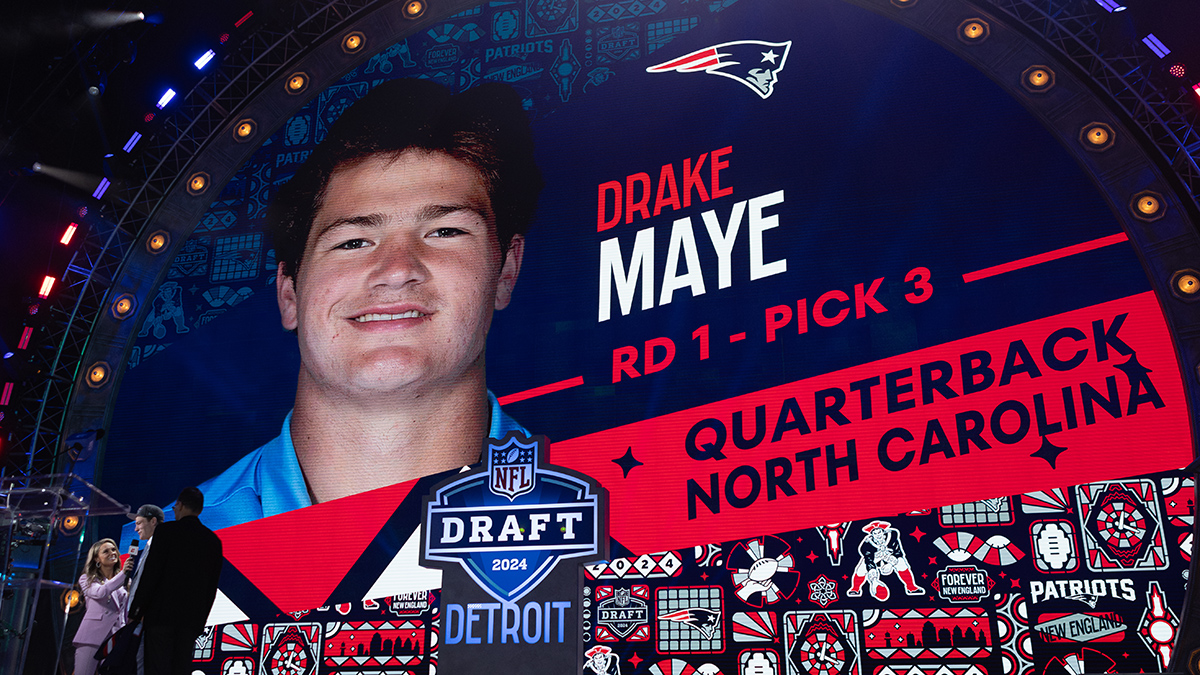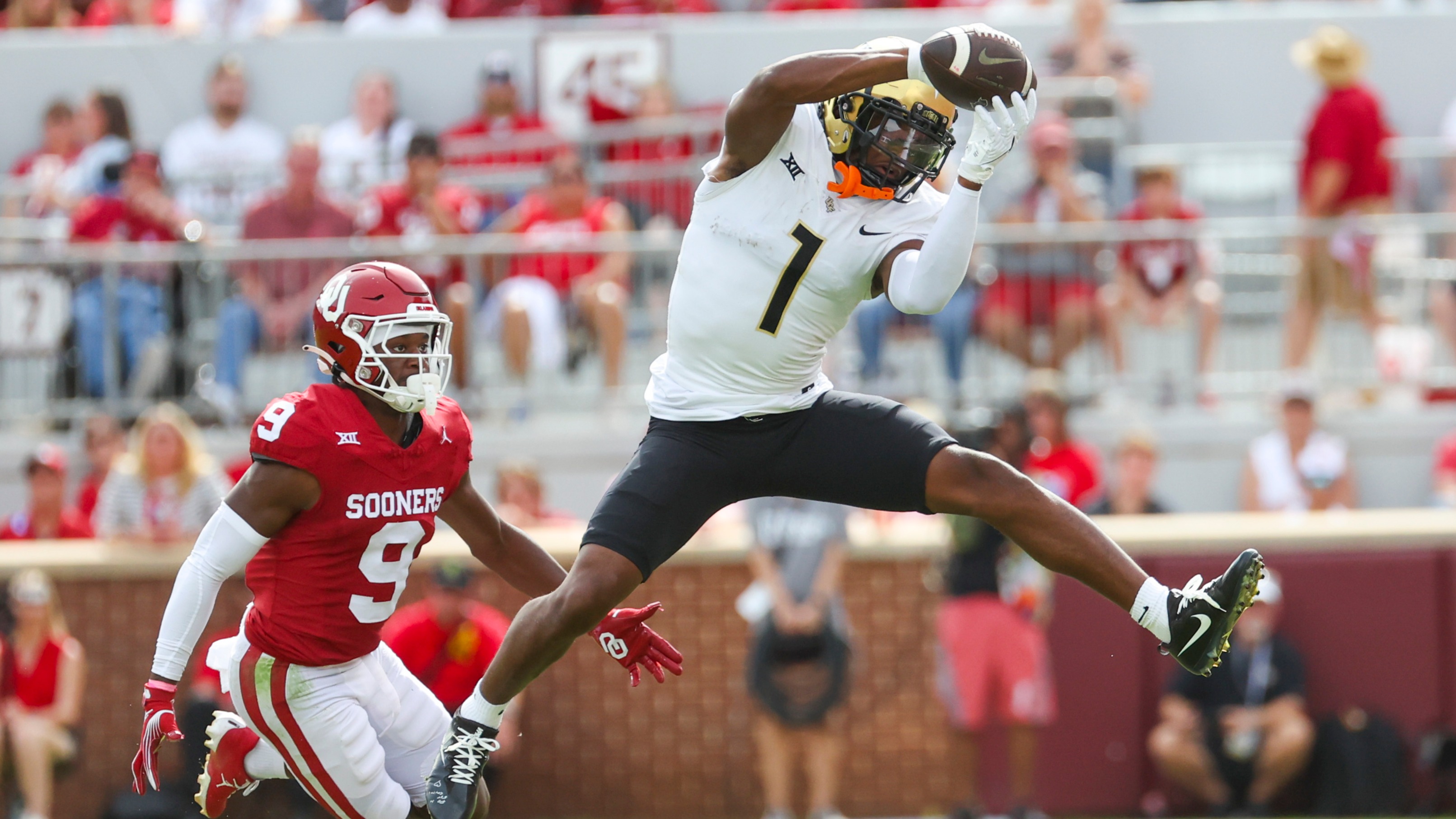The question itself hasn’t changed much in Bill Belichick’s 48 seasons as a professional coach. Through the years, football lifers and casual fans alike have asked some version of this:
What does Bill see?
In many of those years, the question was asked with reverence. What secret pattern does Bill see during film study that’s invisible to the rest of us? What unknown weakness does he see in offenses that were once thought to be unstoppable? In 2001, he and Romeo Crennel solved the riddle of the St. Louis Rams and their league-leading 31 points per game, held them to 17, and secured the Patriots’ first Super Bowl win. In 2018, he and Brian Flores unplugged the Los Angeles Rams and their 33 points per game, held them to a field goal, and captured New England’s most recent ring.
Stay in the game with the latest updates on your beloved Boston sports teams! Sign up here for our All Access Daily newsletter.
Belichick was the guy you left alone. Because whether you were cheering for his players or paying him to coach and construct your team, you were convinced he’d find a way to figure it out. No one in NFL history has coached so long without so much as a one- or two-year sabbatical. No one currently in the league has matched the unconventional, ring-accumulating journey that started at 23 years old and still remains a work-in-progress at age 70.
And that’s why today’s version of the question is so fascinating. The tone is edgier, more urgent, and borderline angrier than it’s been in a generation. What does Bill see? is too long-winded and respectful for the times. These days, Belichick generates WTF? vibes.
To a degree, he’s always faced elements of that from media corners. But the corners have collapsed and now there are more critics, fans and media, circling the room. More important, Robert Kraft has been publicly critical of his head coach’s frightening draft slump and zero playoff wins since Super Bowl 53.
Curran: Pinning down the Patriots' succession plan for Belichick
New England Patriots
Belichick and his defensive staff, quite literally his friends and family, haven't shut down or even slowed down teams when it's mattered most. The Patriots are 6-11 in December and January since 2019. Last year’s playoff game plan against Buffalo should be in the Hall of Fame -- Buffalo’s Hall of Fame. The Bills didn’t punt once and Josh Allen actually threw a touchdown pass when he meant to throw the ball out of bounds.
It’s as if a deity has weighed Belichick’s lifetime of historic football success and determined, effective immediately, that it’s only right to balance the scales.
So the man who once drafted Hall of Famers from positions as varied as sixth overall (Richard Seymour), 42nd (Rob Gronkowski) and 199th (Tom Brady), now swings and misses more than Franchy Cordero. In the spring of ’18, he zeroed in on the University of Georgia backfield, which is good. But he picked Sony Michel, who is now on his third team, over Nick Chubb, who just went to his third Pro Bowl with the Browns.
The next year, Belichick drafted N’Keal Harry and didn’t offer Brady a contract extension. The year after that, in a 2020 draft class hailed for its wide receiver depth, he drafted no wideouts and opted for two tight ends, Dalton Keene and Devin Asiasi, instead. Just two years later, neither player is a Patriot.
Last year, he drafted Mac Jones and watched him practically meld into the team’s offensive system. Rookie Jones passed for more yards in his first season than Peyton Manning, Warren Moon, and Russell Wilson did in theirs. Predictably, that success earned Josh McDaniels a doubled salary, hiring and firing power, and the head coaching job in Las Vegas.
The twist, though, has come with McDaniels’s replacements.
The old system is gone.
The offensive coordinator title, for anyone in New England, is gone.
Either Belichick, Matt Patricia, Joe Judge, or all of the above, is in as the trusted offensive voice in Jones’s ear.
What does Bill see?
Yo, WTF?!?
This feels like another example of Belichick standing at a crossroads. He finds himself here a lot, for crossroads like these have defined his career for decades. This is the moment in the future documentary where the experts will say that the coaching vision of Belichick was too brilliant for his dimwitted critics to grasp. Or it’ll be the sequence that everyone points to as the official wrecking ball for any dynasty remnant. Will this be known as the Belichick experiment that was just too weird, too unnecessary and, ultimately, too destructive for his team to overcome?
No one knows yet. We’ll get our first set of answers Sunday afternoon in Miami.
What we do know is that Belichick has been a calculated risk-taker for most of his career, and he was like that long before he arrived in New England. He often imagines paths that his peers either don’t see or are unwilling to put into motion.
Patriots Talk: NFL ironman Pete Kendall wonders if the Patriots are playing possum | Listen & Subscribe | Watch on YouTube
In 1992, it meant that Belichick happily signed 29-year-old Vinny Testaverde, a quarterback who’d amassed 112 interceptions in his first six NFL seasons. Belichick, then the head coach of the Browns, already had a 29-year-old quarterback, Bernie Kosar. The league considered Kosar a more efficient and reliable leader, by far. Yet Belichick said that Kosar’s skills were diminishing, Testaverde’s weren’t, and Testaverde was his quarterback going forward. It sounded ridiculous in real time. But Testaverde played for 15 more years and had 140 additional starts. Kosar had three starts left in him, all as a backup.
In 2000, what did Bill see? A truly odd way to exit the New York Jets and an unwanted partnership with Bill Parcells. That led to the most bizarre resignation and press conference in league history. His separation was humiliating, memorable, and definitive. Once again, the move seemed unwise: Parcells was a charismatic, two-time Super Bowl winner and Belichick was the failed head coach with one playoff win and a .450 winning percentage.
The Brady-Drew Bledsoe drama was the next year. Four years after it, following Brady’s third Super Bowl win, Belichick gave the offensive coordinating reins to McDaniels. The new guru was 28 and had four years’ coaching experience, one on offense. Theoretically, he couldn’t teach Brady anything. They were the same age, and McDaniels was the novice play-caller charged with getting Brady to listen to and respect him.
The big question now is from the audience, and it is: Do Bill’s greatest/most provocative hits matter today?
The intentional safety he pulled off in Denver; the college wrestler he turned into a starting guard; his fourth-and-two aggressiveness in Indy (a dozen years before Brandon Staley and John Harbaugh popularized it in LA and Baltimore); his selection of Julian Edelman in the seventh round; his trade up for Chandler Jones; his belief in (and then abandonment of) a former Popeye’s Chicken employee, whose presence won a Super Bowl and whose absence might have lost one.
Some traits of that Belichick are still there. He remains mostly grumpy and occasionally gracious. You can catch his reasonable side and retaliatory one, too, sometimes in the same day. At times, he seems to define loyalty as uncritical commentary of his actions.
He’s the sport’s greatest coach, and he’s once again trying something different. He could be miles ahead of the pack. He could be setting a trend that others in the league will shamelessly borrow.
What does Bill see?
Who knows? This Sunday, we’ll get to see right along with him.


